Sanjeev Kumar
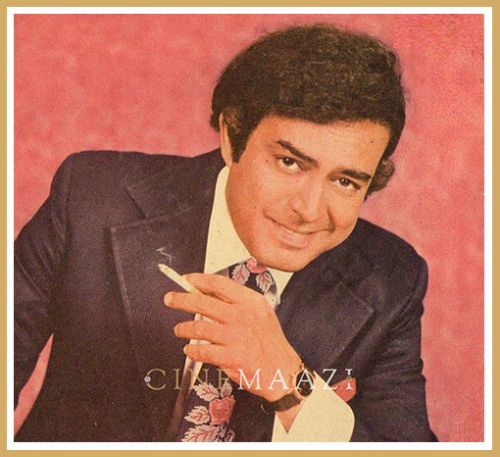
Subscribe to read full article
This section is for paid subscribers only. Our subscription is only $37/- for one full year.
You get unlimited access to all paid section and features on the website with this subscription.
Not ready for a full subscription?
You can access this article for $2 , and have it saved to your account for one year.
- Real Name: Harihar Jethalal Zariwala
- Born: 9 July, 1937 (Surat, Gujarat)
- Died: 6 November, 1985
- Primary Cinema: Hindi
- Parents: Zaverben Jethalal Jariwala and Jethlal Jariwala
An actor for all seasons, Sanjeev Kumar shone in a gamut of roles from comedy to drama, with his effortless histrionics. A role model for all aspiring actors, he cared not for glamour nor his image as a star, whether it meant appearing onscreen in his underpants in Thande thande paani se nahana chahiye (Pati Patni Aur Woh, 1978), or cast as father figure to actors who were his contemporaries such as Amitabh Bachchan in Trishul (1978) and Sharmila Tagore in Mausam (1975). Making his mark opposite none less than Dilip Kumar in Sungharsh (1967), he went on to shine in a plethora of films including Khilona (1970), Koshish (1972), Manchali (1973), Naya Din Nayi Raat (1974), Sholay (1975), Aandhi (1975), Shatranj Ke Khilari (1977), Trishul (1978), and Silsila (1981). With memorable performances that spanned the spectrum from the dramatically helpless yet brave Thakur of Sholay, to delivering one of the most perfect comedic performances of all time in Angoor (1982), he has made an indelible imprint with his presence and acting prowess. Acting in 153 films from 1960 to 1985, he won the coveted National Award for his performances in Dastak (1970) and Koshish (1972). From the stage to an actor in the crowd, to stunt films, to National Awards for acting, he embraced every opportunity to give his best as an actor, leaving an unforgettable and remarkable contribution to Hindi cinema.
Born Harihar Jethalal Zariwala on 9 July, 1937 in Surat (Gujarat), he hailed from a large traditional family with a humble background living in a Bombay tenement. With acting being an obsession with him from his school days, he started off as an actor with IPTA and went on to join the Indian National Theatre. After dabbling in theatre, he joined the Filmalaya Acting School and did his first role, a two-minute bit role of a police inspector in Filmalaya’s Hum Hindustani (1960). He failed the audition for the Rajshris’ Aarti (1962) opposite Meena Kumari and was rejected. He went on to play a small role in the Joy Mukerji-Saira Banu starrer,Aao Pyar Karen (1964).
His first film as hero, Nishan (1965), was a B-grade swashbuckler. It was followed by action films such as Husn Aur Ishq (1966), Smuggler (1966), Gunehagar (1967), and Raja Aur Runk (1968), which were popular with the front benchers. It was no less than a revelation when he later deviated from his usual tried and tested category of action films, to delve into a whole new realm of films such as Anokhi Raat (1968), Ashirwaad (1968) and Satyakaam (1969).
Working with director Hrishikesh Mukherjee proved to be a turning point in his career. Playing a doctor and Sumita Sanyal’s lover in Ashirwaad, he impressed with his natural and down-to-earth performance. The following year, he again earned appreciation in Mukherjee’s Satyakaam, in a strong supporting role as hero Dharmendra’s friend who is of the belief that survival and success in a dishonest world demand compromise. Matching the thespian Dilip Kumar in H S Rawail’s adaptation of a Mahasweta Devi story on the thugee cult, Sungharsh (1968), he won the Filmfare Best Supporting Actor for his role as an investigating officer in the thriller, Shikar (1968), which starred Asha Parekh and Dharmendra. As a result, he began to be paired opposite top actresses such as Nutan, Waheeda Rehman and Mala Sinha in what were essentially heroine-oriented films. It was Khilona (1970) that elevated Sanjeev Kumar to star status. Yet again it was his outstanding performance as a mentally imbalanced man who is nursed by a prostitute (Mumtaz) that earned him acclaim. He followed it up with Dastak (1970) in which he delivered another admirable performance as a man struggling along with his wife to sustain themselves with dignity in Bombay. His performance won him a National Award for Best Actor.
Even as he continued to feature in offbeat films such as Anubhav (1971), he strengthened his position in mainstream cinema with hits such as Seeta Aur Geeta (1972) and Manchali (1973). His association with director Gulzar post Parichay (1972) and Koshish (1972), which won him a second National Award, brought forth some of Kumar’s best work as an actor. He shone in Gulzar directorials Aandhi (1975), Mausam (1975), Angoor (1981), and Namkeen (1982).
Completely unselfconscious about his image, he was not averse to playing characters much older than he was in films such as Aandhi, Mausam, Sholay (1975) and Trishul (1978). While he had played Jaya Bhaduri’s lover in Koshish and Anamika (1973), he essayed her father-in-law in Sholay, though he was merely 10 years her senior.
Additionally, despite known largely as a serious actor, he possessed a gift for the light-hearted with great comic timing in films such as Manchali (1973), Manoranjan (1974), Pati Patni Aur Woh (1978), Angoor (1982) and Laakhon Ki Baat (1984). His versatility was further portrayed in films like Naya Din Nai Raat (1974), in which he essayed multiple roles.
Kumar was known to put considerable effort into his seemingly effortless performances onscreen. For the renowned Satyajit Ray’s Shatranj Ke Khiladi (1977), Kumar spent a month in Pune at the National Film Archive of India (NFAI). He spent this time watching Ray’s body of work, ashamed that he hadn’t watched the films of the great auteur he was to work with. It helped him deliver a delightfully nuanced performance. Similarly, in order to prepare for Khilona he spent considerable time in an asylum for the mentally ill.
Sanjeev Kumar was known for his admirable voice control, which he used to considerably enhance his performance at the dubbing stage. He could bring an emotional quiver into his voice when required to add to his performance, along with employing small though significant gestures such as running his hand down his neck.
Sanjeev Kumar never fit into the idiom of a conventional hero — not that he ever wanted to. In his own inimitable way, he tore and re-wrote all the conventions of the film industry. A thinking actor, he opted to use his face to showcase every emotion, a master at using one single facial twitch to convey more than pages of dialogues could.
Among his unforgettable performances, he astutely conveyed pathos through his moist eyes as the mute, handicapped man in Koshish. As the former lover of the mother of the prostitute Kajli in Mausam, his dejection and the storm raging within him are palpable. Naya Din Nayi Raat (1974) saw him perform 9 different roles, essaying each of them deftly, from humour, pathos, anger, and fury, to fear, valour, bravery, wonder and peace. He moved effortlessly from being the flirtatious husband in Pati Patni Aur Woh (1978) to the tearful lover in Anamika (1973). With Sholay (1975) he proved yet again that real actors don’t need gestures; featuring minus arms in the major part of the film he used his expressions alone to produce a commanding performance. His dark-tinged character in Trishul (1978) brought out human follies as well as man’s ability to redeem himself, while his performance as the cuckolded husband in Silsila (1981) won him empathy. Equally effective at light roles, his double role in Angoor (1982) was listed among the 25 best acting performances of Indian cinema by Forbes India on the occasion of celebrating 100 years of Indian Cinema.
The 1980s saw a general decline in Kumar’s output. Perhaps the only two film releases that stand out in this period are the Subhash Ghai directorials Vidhaata (1982), in which he faced Dilip Kumar again, and Hero (1983). It was during this time that he grew careless about his looks and followed an unhealthy lifestyle. Remaining unmarried after he was unable to wed Hema Malini (she was apparently not prepared to give up her career post marriage), Sanjeev Kumar died of an acute heart ailment on 6 November, 1985.
He was 47.
-
Filmography (120)
SortRole
-

Professor Ki Padosan 1993
-

Oonch Neech Beech 1989
-
Raahee 1987
-
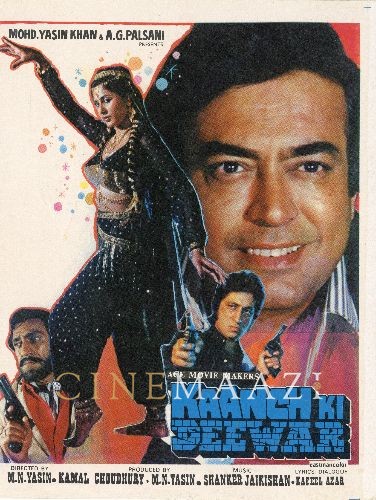
Kaanch Ki Deewar 1986
-
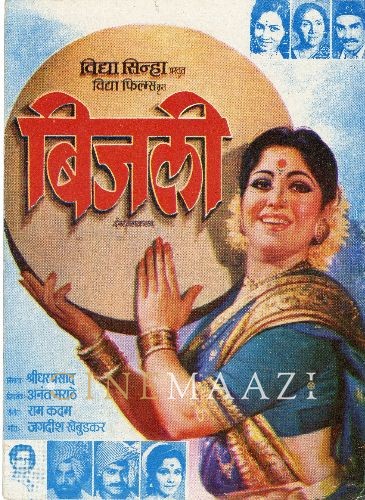
Bijli 1986
-

Bad Aur Badnaam 1984
-

Pakhandee 1984
-

Hero 1983
-
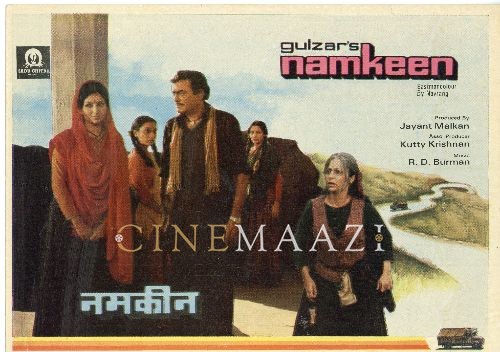
Namkeen 1982
-

Log Kya Kahenge 1982
-
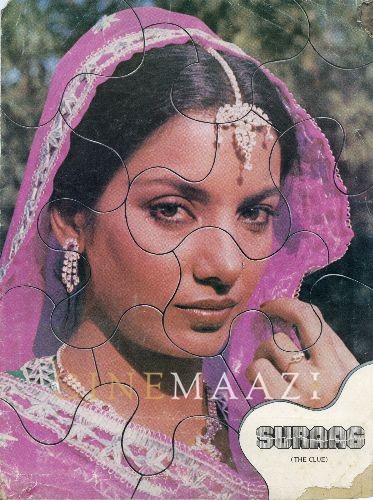
Suraag 1982
-
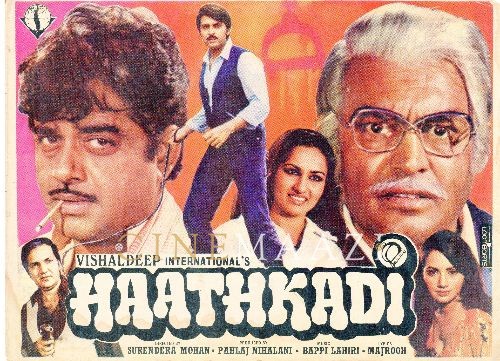
Haathkadi 1982
-
-
Awards (1)

National Film Awards, 1971
Best Actor Award: Dastak (1970)








.jpg)



